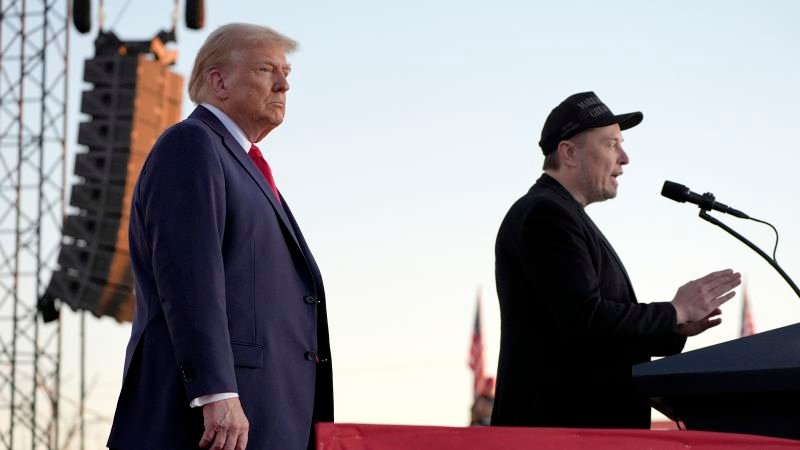Former President Donald Trump’s campaign was in contact with Elon Musk’s X in regards to hacked Trump campaign materials that were circulating on social media. The materials, published by journalist Ken Klippenstein, allegedly resulted from an Iranian government-supported hacking operation. The dossier contained internal communications from a senior Trump campaign official and information on Sen. JD Vance before he was named as Trump’s running mate. Klippenstein’s publication of the dossier on Substack led to his X account being permanently banned for violating the platform’s rules on posting private information.
The Trump campaign had discussions with X officials about the hacked materials before Klippenstein was banned and links to his newsletter were blocked. The campaign did not pressure X officials to remove the links, stating that X made the decision independently. The New York Times reported on the correspondence between the Trump campaign and X officials, with Musk allegedly supporting Trump’s reelection efforts. X aggressively blocked links to the dossier, contrasting with Meta’s approach of blocking users from sharing Klippenstein’s newsletter but allowing his Instagram and Facebook accounts to remain active.
Klippenstein’s post on X contained a link to his Substack page, which in turn had the PDF of the dossier, but he did not share Vance’s information directly on the platform. X’s suppression of the dossier was in line with Meta’s policy to block content from hacked sources or foreign government operations influencing US elections. Klippenstein was not the only recipient of the dossier, as Politico, The New York Times, and The Washington Post also received emails with similar private campaign documents but opted against publishing them.
This move by X to block links to Klippenstein’s newsletter comes after Musk released Twitter company documents dubbed the “Twitter Files,” alleging government coercion in the censorship of links to a 2020 New York Post article about Hunter Biden, which Twitter executives later regretted. Musk’s acquisition of Twitter, renamed X, was framed as a bid to create a free digital public square free from censorship, but the ban on Klippenstein and suppression of links to his newsletter raises questions about the platform’s favoritism towards Trump. Musk has actively supported Trump’s candidacy on X and donated millions to a pro-Trump super PAC.
Musk’s recent appearances alongside Trump at rallies and his comments to Tucker Carlson about “trashing Kamala [Harris] nonstop” indicate his strong support for Trump’s reelection. Musk’s statements suggest that if Trump were to lose the election, he would face negative consequences. Musk’s involvement in supporting Trump through his platform X and financial contributions to pro-Trump efforts highlight his stance on influencing the political landscape. The X platform’s actions regarding the hacked campaign materials and suppression of certain content raise concerns about the platform’s role in political discourse and its impact on the upcoming elections.











